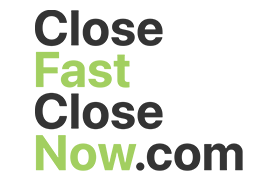Conventional
A conventional mortgage or conventional loan is any type of home buyer’s loan that is not offered or secured by a government entity. Instead, conventional mortgages are available through private lenders, such as banks, credit unions, and mortgage companies. However, some conventional mortgages can be guaranteed by two government-sponsored enterprises; the Federal National Mortgage Association (Fannie Mae) and the Federal Home Loan Mortgage Corporation (Freddie Mac). Make An AppointmentAPPLY NOWAbout
Conventional mortgages typically have a fixed rate of interest, which means that the interest rate does not change throughout the life of the loan. Conventional mortgages or loans are not guaranteed by the federal government and as a result, typically have stricter lending requirements by banks and creditors.
Some of the government agencies that secure mortgages for banks include, the Federal Housing Administration (FHA), the U.S. Department of Veterans Affairs (VA), and the USDA Rural Housing Service. However, there are requirements that borrowers must meet to qualify for these programs.
KEY POINTS OF A CONVENTIONAL LOAN
- A conventional mortgage or conventional loan is a home buyer’s loan that is not offered or secured by a government entity.
- It is available through or guaranteed by a private lender or the two government-sponsored enterprises—Fannie Mae and Freddie Mac.
- Potential borrowers need to complete an official mortgage application, supply required documents, credit history, and current credit score.
- Conventional loan interest rates tend to be higher than those of government-backed mortgages, such as FHA loans.
Among the items required are:
1. Proof of Income
These documents will include but may not be limited to:
- Thirty days of pay stubs that show income as well as year-to-date income
- Two years of federal tax returns
- Sixty days or a quarterly statement of all asset accounts, including your checking, savings, and any investment accounts
- Two years of W-2 statements
- Borrowers also need to be prepared with proof of any additional income, such as alimony or bonuses.
2. Assets
3. Employment Verification
4. Other Documentation
These types of loans are not for everyone. Here’s a look at who is likely to qualify for a conventional mortgage and who is not.
Who May Qualify:
People with established credit and stellar credit reports who are on a solid financial footing usually qualify for conventional mortgages. More specifically, the ideal candidate should have:
Credit Score
A credit score is a numerical representation of a borrower’s ability to pay back a loan. Credit scores include a borrower’s credit history and the number of late payments. A credit score of at least 640 and, preferably, well over 700 can be required for approval. Also, the higher the score, the lower the interest rate on the loan, with the best terms being reserved for those over 740.
Debt-to-Income
An acceptable debt-to-income ratio (DTI). This is the sum of your monthly debt payments, such as credit cards and loan payments, compared to your monthly income. Ideally, the debt-to-income ratio should be around 36% and no more than 43%. In other words, you should spend less than 36% of your monthly income on debt payments.
Down Payment
A down payment of at least 20% of the home’s purchase price readily available. Lenders can and do accept less, but if they do, they often require that borrowers take out private mortgage insurance and pay its premiums monthly until they achieve at least 20% equity in the house.
In addition, conventional mortgages are often the best or only recourse for homebuyers who want the residence for investment purposes, as a second home, or who want to purchase a property priced over $500,000.
Who May Not Qualify:
Generally speaking, those who are just starting out in life, those with a little more debt than normal, and those with a modest credit rating often have trouble qualifying for conventional loans. More specifically, these mortgages would be tough for those who have:
- Suffered bankruptcy or foreclosure within the past seven years
- Credit scores below 650
- DTIs above 43%
- Less than 20% or even 10% of the home’s purchase price for a down payment
However, if you’re turned down for the mortgage, be sure to ask for the bank’s reasons in writing. You may qualify for other programs that could help you get approved for a mortgage. For example, if you have no credit history and you’re a first-time homebuyer, you may qualify for an FHA loan. FHA loans are loans that are specifically tailored for first-time home buyers. As a result, FHA loans have different qualifications and credit requirements, including a lower down payment.
Rancho Cucamonga, CA 91730
(909) 917-5567
[email protected]
NMLS#2241612 | DRE#01719218
Licensed by the Department of Corporation under the California Residential Mortgage Act. Some products and services may not be available in all states. Credit and collateral are subject to approval. This is not a commitment to lend. Programs, rates, terms, and conditions are subject to change without notice. EZ Fundings is an Equal Housing Lender and is prohibited from discriminating on the basis of race, color, religion, national origin, sex, handicap, or familial status. NMLS ID #1156892
